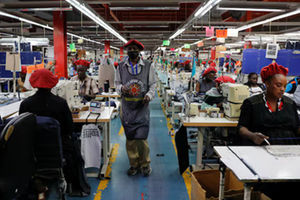Tough times loom as fuel prices set to rise on Russia-Ukraine war

What you need to know:
- Motorists will next month start using the consignment imported in February, suggesting that the rise in prices in February would be felt in April
Dar es Salaam. Tanzanian consumers should expect no mercy from traders as prices of fuel are expected to rise further next week in response to rising global prices.
Global prices for crude oil have risen by over $10 per barrel during the past one month since the war between Russia and Ukraine broke out on February 24, 2022.
Prices crossed the $100/barrel mark on February 24, with the European benchmark Brent North Sea crude surging more than eight percent to $105.79 per barrel -- the highest level since 2014.
Similarly, the US contract West Texas Intermediate reached $100.54 per barrel, also a peak last seen more than seven years ago.
Russia is one of the world’s leading suppliers of petroleum products and gas in the world. Since then, prices have remained high, with the AFP reporting yesterday that Brent North Sea crude rose by 2.9 percent to reach $113.41 per barrel while West Texas Intermediate rose by 3.9 percent at $108.29 per barrel.
Tanzania imports some 3.6 billion litres of refined petroleum products per year through monthly Bulk Procurement System tenders. Motorists will next month start using the consignment imported in February, suggesting that the rise in prices in February would be felt in April as pump prices will be announced on Wednesday next week. Unfortunately, next week’s prices could potentially have to add Sh100 more of the relief that was ‘accidentally’ suspended from the prices last month when Energy minister January Makamba intervened.
Receiving the audit reports of the Controller and Auditor General (CAG) for the 2020/21 financial year, President Samia Suluhu Hassan said at Chamwino State House in Dodoma yesterday that the suspension announced by Mr Makamba was illegal.
“I have decided that the levy should be reinstated. It has brought us some challenges because its removal came after the budget had already been approved,” she said.
Earlier this month, Mr Makamba said the Sh100 surcharge on the litre of petrol, diesel and kerosene would be scrapped for a period of three months until May, 2022 to cushion consumers from cost increases as the country anticipates a spike in global oil prices following the Russia-Ukraine war.
But President Hassan said yesterday that apart from the legality of the removal itself, the Sh100 would also bring ‘negligible’ relief at a time when global prices keep rising.
“The thinking was that by removing Sh100, prices would rise by only Sh56 instead of Sh156 but after making a thorough analysis, we have reached a conclusion that it will not do much to help,” she said, blaming the ongoing rise on the Russia-Ukraine war which has also come at a time when demand for various commodities was already on the rise after the removal of Covid-19-induced lockdowns.
She directed her lieutenants to take the message of why prices were rising to Tanzanians so that they understand what was actually going on, explaining that high cooking oil costs were also partly due to rising global prices.
During the Covid-19 pandemic period, production ceased as some countries implemented lockdowns in their fight against the global pandemic.
“A lot of food that was in warehouses was consumed. This created a slowdown in supply hence prices rose and this is the situation that we are in today,” said President Hassan.
The removal of lockdowns also necessitated a rise in demand of some products and as a result, demand for shipping containers has also risen. “While one would get a 40-feet-container at $1,500 during the pre-pandemic period, one now needs between $8,000 and $9,000 to get the same,” he said, expressing her dismay on why her subordinates were not taking that message to the public for people to understand.





